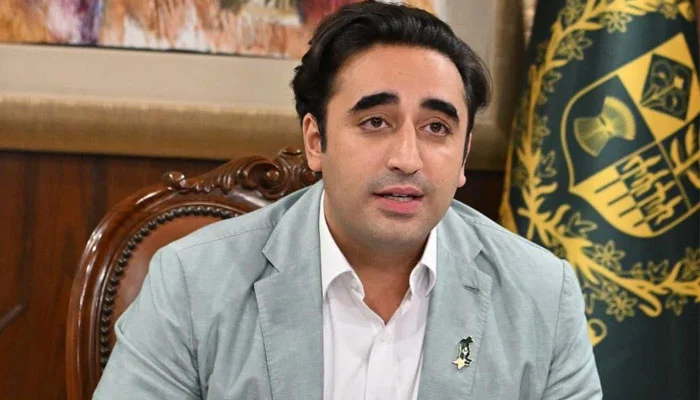Bilawal leads charge as coalition tensions escalate on multiple grievances
KARACHI:
The Pakistan Peoples Party (PPP) leadership convened on Monday to address increasing dissatisfaction over what it terms as unfulfilled commitments and one-sided decisions by the federal government. The meeting, held at Bilawal House Karachi, centered on political, policy, and developmental challenges, especially in Punjab and at the federal level.
Key Concerns Raised by PPP
As a coalition partner of the ruling PML-N government, the PPP expressed discontent over a lack of timely consultation on critical political and legislative matters. According to an official statement, members identified unmet commitments and inadequate collaboration as significant hurdles straining the partnership.
The meeting, chaired by PPP Chairman Bilawal Bhutto-Zardari, was a platform to discuss these grievances. The PPP’s coordination committee reviewed unresolved issues across Punjab, South Punjab, Balochistan, and Sindh. Discussions delved into policy matters, including flood rehabilitation, water management disputes, agricultural reforms, and challenges in the digital economy.
Addressing Terrorism and Building Consensus
In addition to policy concerns, the party highlighted the growing threat of terrorism in Pakistan. The PPP emphasized the urgent need for a unified national strategy to tackle emerging security challenges. “The absence of a consensus among stakeholders on combating terrorism has further complicated the situation,” the statement read.
Bilawal Bhutto-Zardari directed committee members to engage with other political parties and explore areas of potential consensus. Recommendations are expected to be presented at the PPP’s Central Executive Committee (CEC) meeting later this month.
Formation of a High-Level Committee
Amid these challenges, Bilawal announced the formation of a high-level committee tasked with negotiating directly with the PML-N-led federal government. This committee comprises senior PPP leaders, including Raja Pervez Ashraf, Sherry Rehman, Sindh Chief Minister Murad Ali Shah, and others.
The committee’s formation signals PPP’s willingness to address grievances diplomatically while ensuring its coalition partner is held accountable. However, insiders reveal that the PPP’s patience is wearing thin, and the party’s next steps could significantly impact the government’s stability.
Frustration Over Governance Style and Broken Agreements
The PPP has been vocal about its dissatisfaction with the federal government’s governance approach. Recent tensions were exacerbated by the approval of a new canal project from the Indus River without PPP’s consultation—a move Bilawal criticized as lacking national consensus. He also highlighted persistent inequalities in the Supreme Court’s composition and decision-making, advocating for fair representation of rural Sindh judges.
“This is not about discontent; it’s about respect and adherence to agreements,” Bilawal stated during a recent interaction with journalists. He accused the federal government of repeatedly sidelining the PPP on critical decisions, undermining the coalition’s foundational principles.
Efforts to Mend Relations
Following Bilawal’s sharp critique, Deputy Prime Minister and Foreign Minister Ishaq Dar reached out to the PPP leadership to de-escalate tensions. While Dar’s outreach reportedly softened the atmosphere, the formation of the committee underscores PPP’s commitment to addressing its concerns effectively.
The Path Forward
The PPP’s insistence on accountability reflects its determination to ensure the coalition’s agreements are honored. The coming weeks will be pivotal as the PPP evaluates its position within the alliance and presents its recommendations at the CEC meeting.
This evolving political landscape not only shapes the dynamics between PPP and PML-N but also highlights broader governance challenges facing Pakistan today. The PPP’s response will determine whether the coalition strengthens its foundation or succumbs to internal discord.



